11 up-and-coming projects in climate change and the environment
by Simon Levey
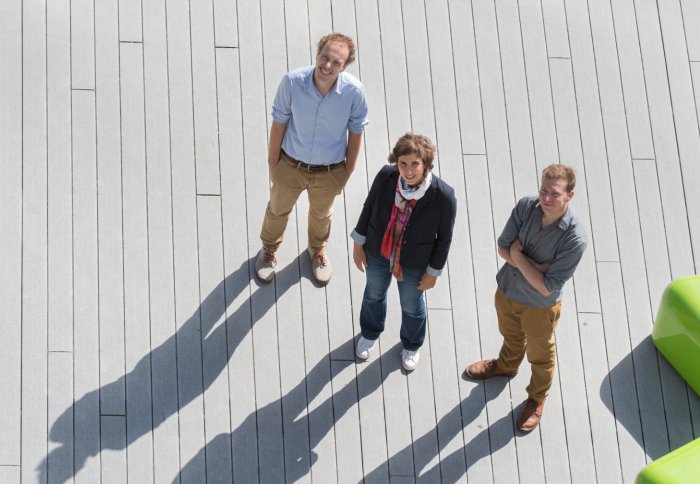
Looking up: Three new lecturers broadening horizons at the Grantham Institute
As world leaders prepare to debate the planet's future, Imperial researchers are rising to the challenges of global environmental change.
The year ahead will include international leaders negotiating the future of greenhouse gas emissions at the Paris 2015 UN Climate Change Conference in December. In September, the UN will publish its Sustainable Development Goals, which aim to set the agenda to end poverty, promote prosperity and wellbeing, protect the environment and address climate change around the globe.
Scientists, engineers, and medical and business experts at Imperial College London are beginning work to understand and predict the future of the climate, avert disastrous levels of change, and find ways for humanity to adapt to an altered environment.
Researchers are measuring melting ice-sheets in Antarctica, building flying robots to survey the changing environment, and modelling the costs of natural disasters to insurers. Three new lecturers (pictured above) will be leading innovative research and postgraduate education programmes, in oceanography, ecology and global health, and economics and climate change.
Details of the projects are published today in the Grantham Institute Outlook 2015-16.
The Grantham Institute is Imperial College London's hub for research in climate change and the environment: driving forward discovery, translating innovations into applications and communicating academic knowledge to businesses, industry and policymakers to help shape their decisions.
"The Grantham Institute exemplifies how Imperial’s research and education deliver societal benefit. This year, the Institute’s work commanded the attention of the scientific community, the media and policymakers alike," said Professor Alice P. Gast, President of Imperial College London.
"The outlook for 2015–16 is equally strong. The Grantham Institute will seize the opportunity to use its expertise and knowledge to inform, influence and inspire people in the UK and across the world."
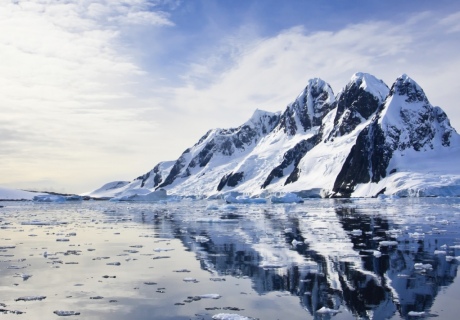
-
1. Antarctic reconnaissance
Very little is known about what lies beneath the ice in Princess Elizabeth Land, the last remaining region of Antarctica yet to be surveyed. This is set to change in 2016, when a collaboration between Imperial College London and colleagues from China, Australia, India and the USA will undertake an airborne geophysical reconnaissance of the region. Grantham Institute Co-Director Professor Martin Siegert and his team will then use detailed surveys to build up a better picture of this last frontier of the Antarctic continent.
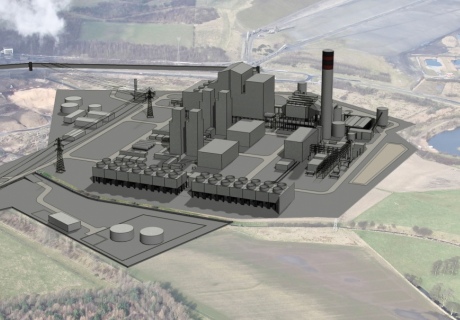
-
2. GENerating power with no carbon-emissions
Engineers are building the world’s first power plant that emits no greenhouse gases, in North Yorkshire, UK. The plant will be fuelled by both biomass and coal, and include technologies capable of capturing 2 million tonnes, or 90 per cent, of the plant’s carbon dioxide emissions, which will be stored beneath the North Sea. The White Rose CCS Project is an industrial collaboration between energy companies Alstom and Drax Power and industrial gas company BOC, with Grantham Affiliate and chemical engineer Dr Niall Mac Dowell studying the role that carbon capture and storage (CCS) can play in the UK’s energy system.
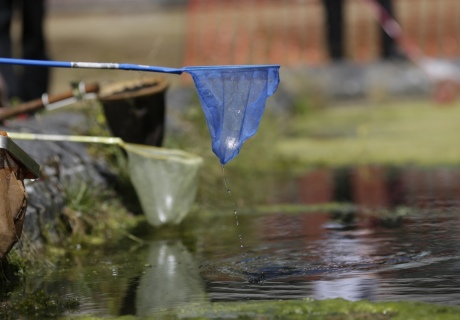
-
3. Experimental pond dipping
Professor Guy Woodward, a Grantham Affiliate from the Department of Life Sciences, is looking into the effects of global environmental change on natural ecosystems. He explores how warming alters food webs by studying interactions between plants and animals in streams of different temperatures around the Arctic Circle. His group recently set up 100 experimental pond ecosystems in the grounds of Imperial’s Silwood Park Campus in Berkshire. They hope the results will inform efforts to conserve or restore ecosystems that have been altered and damaged by climate change, acidification, or invasive species.
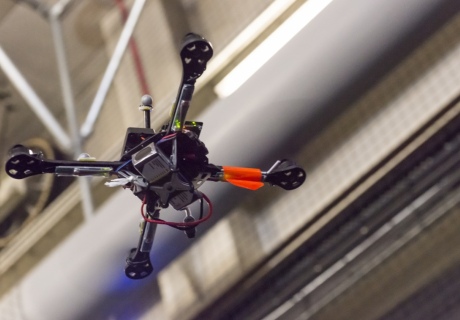
-
4. Improving research with flying laboratories
Imperial engineers are building a laboratory to design and test the next generation of Unmanned Aerial Vehicles (UAVs). Low-cost flying ‘drones’ can be equipped with sensors to accurately map environmental parameters like temperature, humidity and salinity, or the distribution of bacteria or vegetation. Aerial Robotics Laboratory Director and Grantham Affiliate Dr Mirko Kovac sees many ways these robots will be used in upcoming environmental and climate research.
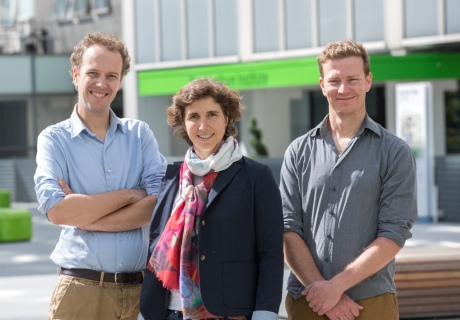
-
5. Things are looking up
Three new Grantham lecturers will be developing new postgraduate education programmes, and enhancing Imperial’s strengths in climate and environment research fields. They are based in the Institute headquarters with joint roles in other Imperial departments. Pictured above, they are (left to right): Dr Erik van Sebille, with the Department of Physics, Dr Mirabelle Muûls, with Imperial College Business School, and Dr Kris Murray, with the School of Public Health.
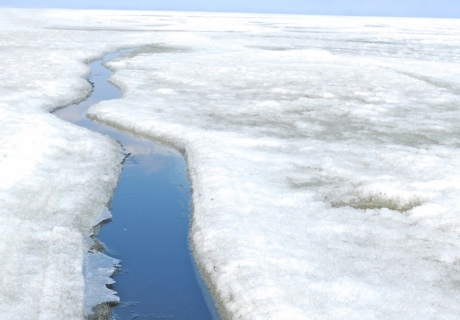
-
6. The future of ice sheets
Grantham Institute research on the chemical composition of sediments from the ocean floor is revealing how the Western and Eastern Antarctic ice sheets have expanded and contracted in the past. Patric Simoes Pereira and Rachel Bertram, whose PhD studentships with the Grantham Institute are funded by the Kristian Gerhard Jebsen Foundation, are analysing cores of ocean sediment. They are trying to predict the likelihood that ice sheets around Antarctica will collapse with a warmer climate in the future.
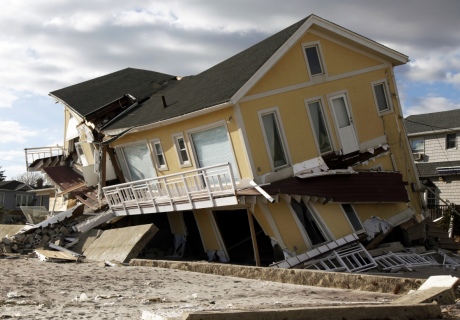
-
7. Modelling insurance risk
Oasis+ is a pan-European project that is developing models, tools and services to help assess the risk from natural disasters, and provide information for planning climate adaptation. Researchers working on the project have developed an award-winning tool, ‘Oasis Loss Modelling Framework’, that uses multiple climate and environmental models to calculate the property damage and financial costs resulting from catastrophes. Imperial physicist, Professor Ralf Toumi, leads the project, which is funded by European Institute of EIT Climate-KIC and supported by 44 global insurers.
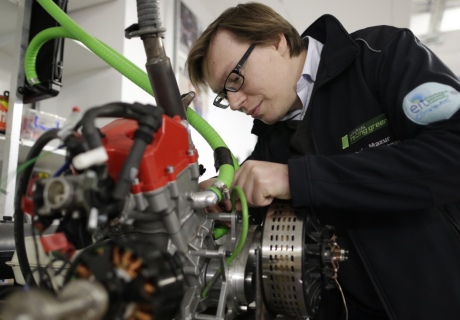
-
8. Informing policymakers
Chemical engineer and Grantham alumnus, Dr Christoph Mazur (pictured above), is researching an Institute-funded briefing paper on the future of road transport, providing a snapshot of the latest developments in key low-carbon transport technologies and analysing their costs. Aimed at policy makers at a local and national level, the paper will use case studies to highlight the best policy choices for the UK to support the development of these technologies and the uptake of low-emission vehicles.
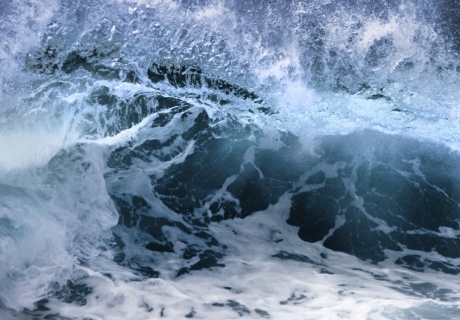
-
9. Diving below the oceans' surface
So far over 90 per cent of the heat the Earth has gained through climate change has been absorbed by the planet’s oceans. Grantham Affiliate Dr Jan Zika, from the Department of Physics, is getting to the bottom of where the oceans store this heat, in order to determine how long it will be locked away. Dr Zika is combining data from ocean models and scientific observations to explore how heat is transported from the ocean surface to its depths.
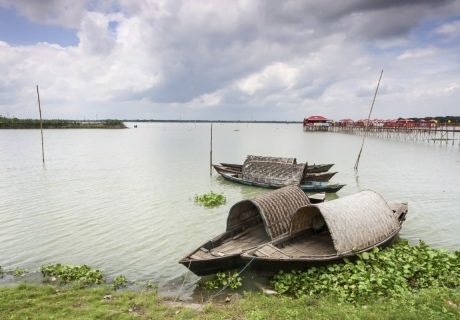
-
10. Providing fresh drinking water
High salt intake has been linked to increased blood pressure, putting people at risk of heart disease and other health conditions. Sea level rise is increasing the frequency of coastal flooding in vulnerable areas such as Southern Bangladesh, making drinking water extremely salty. Imperial researchers Dr Adrian Butler and Professor Paolo Vineis are conducting field research in the lower end of the Ganges delta in Bangladesh, investigating the effects of drinking salty water on human health, and new ways to provide people with safe, fresh water.
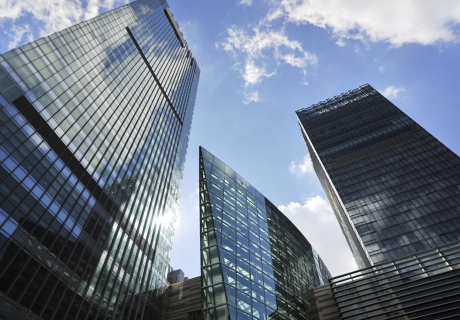
-
11. Educating the leaders of tomorrow
The Institute is preparing to launch a unique MSc programme in Climate Change, Management and Finance, together with the Business School. Students studying for this exciting new degree will develop practical business skills, as well as knowledge about the challenges of sustainability and climate change, meeting the needs of Industry. Grantham Lecturer Dr Mirabelle Muûls is Programme Director.
Article text (excluding photos or graphics) © Imperial College London.
Photos and graphics subject to third party copyright used with permission or © Imperial College London.
Reporter
Simon Levey
Communications Division